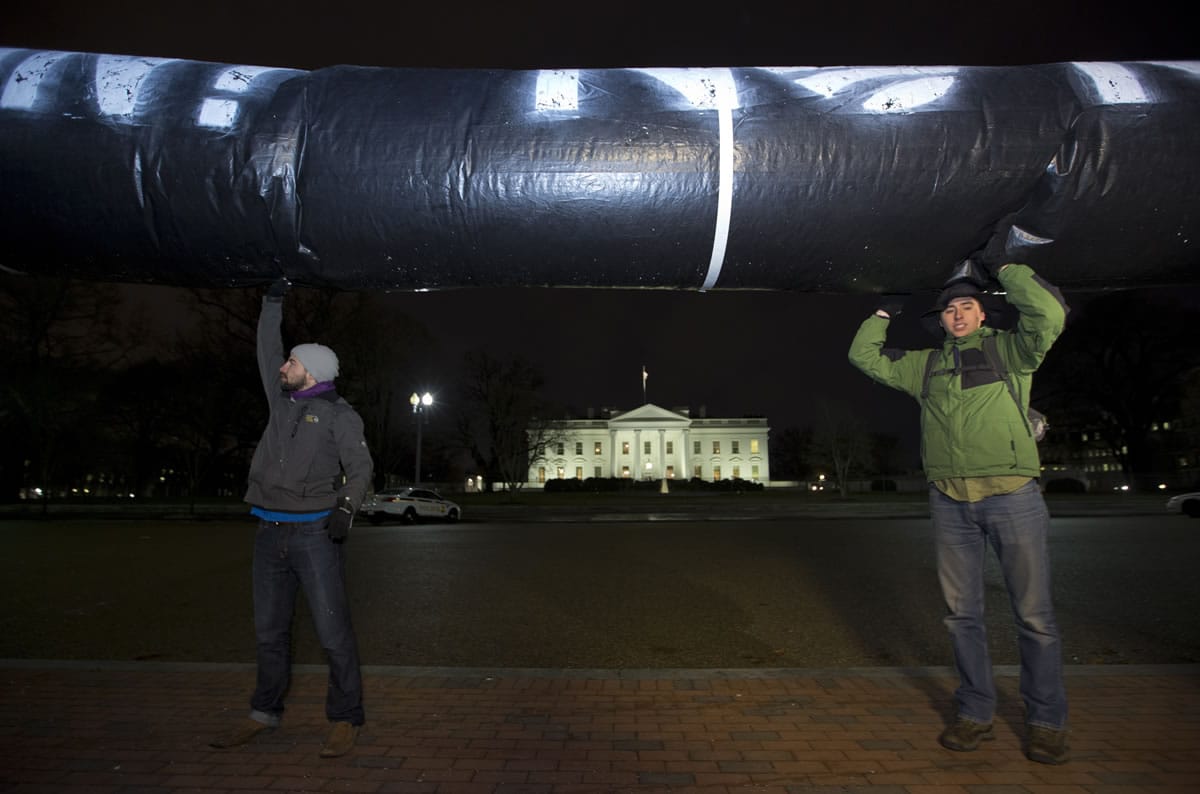WASHINGTON — The consultants writing the State Department’s environmental report of the Keystone XL pipeline have reviewed other projects undertaken in recent years by companies including Keystone’s owner, TransCanada, according to a department official’s letter obtained by environmental groups opposed to the Keystone XL project.
But while environmental groups say that new details in the letter show a conflict of interest and assert that the consultants were working for the big pipeline companies, a State Department official said that the consulting firm was working for landowners in these instances.
An Aug. 8, 2013, letter from then-State Department official Genevieve Walker thanks the firm, Environmental Resources Management, for its June 13 and July 17 disclosures that it was reviewing environmental assessments of four other pipelines, including two TransCanada gas lines to Canada’s west coast, as well as for Enbridge’s proposed Northern Gateway crude oil pipeline, which would run from the oil sands to Canada’s coast.
Walker — who coordinated the agency’s National Environmental Policy Act reviews at the time — writes that as long as ERM separated the personnel working on those projects, particularly those linked to TransCanada, the State Department would have no objection. “Such a step will help further alleviate any concern with respect to perceived conflicts of interest,” she wrote.
ERM is a global provider of environmental, health, safety, risk, and social consulting services. The company has about 4,600 employees, nearly half of whom work in the United States. Its website says that “a substantial portion of our annual revenue comes from projects with mining, oil and gas, and other energy companies.”
The letter, which the advocacy group Sierra Club obtained through the Freedom of Information Act, also indicates that ERM passed up some energy-related contracts to avoid possible charges of conflicts of interest.
“We also note that ERM has determined on its own to forego potential work” for a client linked to TransCanada’s transmission line to Canada’s west coast, the letter said. The other project was in Alaska for a joint venture that included TransCanada.
A State Department official said the letters “show that our process to avoid conflicts of interest worked,” adding that in the case of the project that ERM passed up, the public could have reasonably perceived that ERM would have had a conflict of interest, because the potential client could have had an interest in the decision regarding the Keystone pipeline.”
David McArthur, ERM’s regional chief executive for the Americas, did not return calls for comment.
The State Department did not disclose the identity of the landowners, citing privacy concerns. Pipelines to Canada’s west coast have sparked opposition from environmental groups in British Columbia and First Nation tribes.
Several environmental groups argue that ERM has conflicts of interest grave enough to invalidate the conclusions in the State Department’s final environmental impact statement on Keystone. The State Department’s inspector general confirmed in August that it is reviewing the matter.




